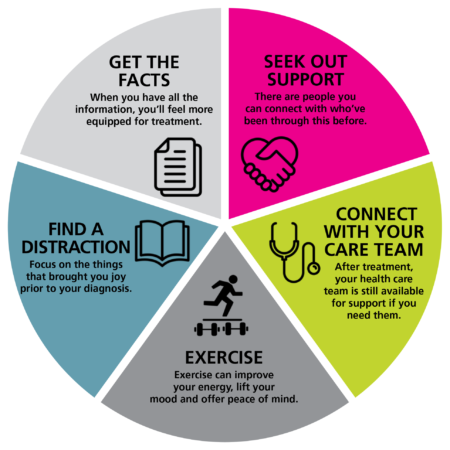October is Breast Cancer Awareness Month, an opportunity to raise awareness about the impact of breast cancer, celebrate the progress made against the disease, and support those affected by it.
Breast cancer is the most common cancer in Canadian women, affecting around one in eight. The Peter Gilgan Centre for Women’s Cancers at Women’s College Hospital (WCH) is working to ensure that every woman can access the highest standard of care in the prevention, diagnosis, treatment, and survivorship of women’s cancers – no matter where she lives.
Throughout October and beyond, The Centre will be hosting events and sharing resources that empower women with the knowledge and information they need throughout their cancer journey.
Day Take Action, Take Control
A genetic screening initiative for cancer risk among Black women
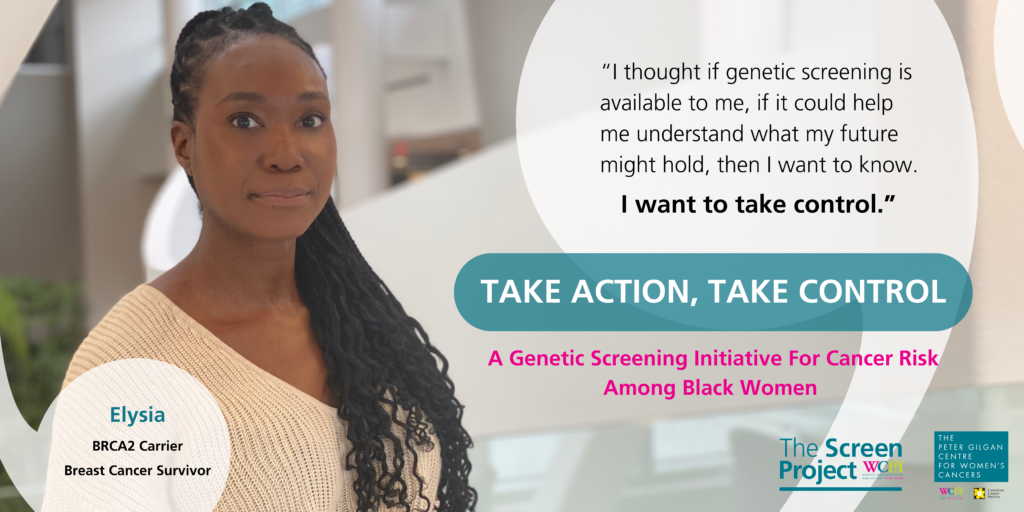
Genetic testing is a powerful tool used to detect changes in our genes that can be associated with a greater risk of developing certain cancers, including breast cancer. While genetic testing rates are on the rise, Black women’s participation remains low. Reasons for low participation include lack of knowledge and awareness about genetic counselling and testing, cost of testing, distrust of the healthcare system, ineffective communication from healthcare providers, lack of referrals from healthcare providers, and various family concerns.
Take Action, Take Control is a new initiative to empower Black women to take action and take control by learning more about what hereditary cancer genetic testing can mean for them and their families. Through this initiative, The Peter Gilgan Centre for Women’s Cancers at Women’s College Hospital will provide information about hereditary cancer genetic testing tailored to Black women.
Why should Black women consider genetic testing?
There is some research to suggest that PALB2 mutations are more common in Black women with breast cancer in the United States. This genetic mutation increases the risk for breast, ovarian and other cancers.
Researchers have also found that triple-negative breast cancer, an aggressive form of breast cancer, occurs more often in Black women, women under 40, and women with a BRCA1 mutation.
How to get genetic testing
The Ontario Health Insurance Plan, or OHIP, pays for the cost of genetic testing for individuals who meet specific eligibility criteria. Eligibility is based on an individual’s personal and/or family history of cancer. If you have a family history of cancer, it’s important to speak to your healthcare provider and/or a genetic counsellor to discuss whether genetic testing may be right for you.
However, not everyone meets the OHIP eligibility criteria for hereditary cancer genetic testing. If you still want to take action to find out if you are genetically predisposed to developing breast and other cancers, you can enroll in The Screen Project – a national research initiative to make hereditary cancer genetic testing more accessible. Through the Screen Project, hereditary cancer genetic testing is available to all Canadian adults at a cost of $299 USD.
To learn more about how you can take control of your health, visit The Screen Project website
Breast Reconstruction Awareness (BRA) Day
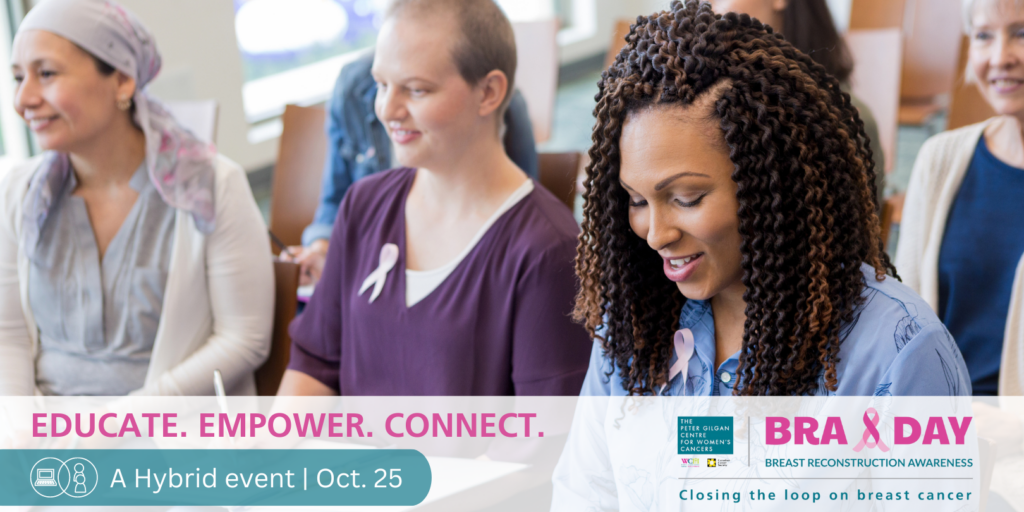
WEDNESDAY, OCTOBER 25, 2023. 7:00 –10:00 p.m.
A HYBRID event: In-person at Women’s College Hospital, Virtual on Zoom.
BRA Day returned for 2023, and this year, the three-hour event for those considering breast reconstruction went hybrid. For the first time, guests were welcome to attend in person at Women’s College Hospital or Online via Zoom.
BRA Day intends to:
- EDUCATE women on their breast reconstruction options (including flat closure)
- EMPOWER women to make the choice that’s right for them
- CONNECT women with others who have been through it
BRA Day once again featured the Show and Tell Lounge, both in person and virtual, offering a unique opportunity to see the real results of breast reconstruction. The Show & Tell Lounge is proudly sponsored by the Canadian Cancer Society.
The annual event is open to women and men across the country and will include presentations from leading Canadian breast reconstruction experts, stories from patients, and a Q&A session allowing attendees to get answers to their reconstruction questions from the professionals.
BRA Day 2023 is generously sponsored by:

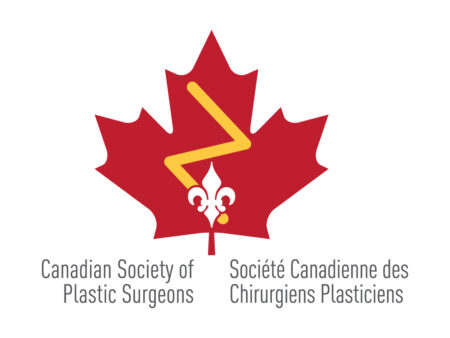


Watch previous BRA Day videos:
- BRA Day 2023 Playlist on Youtube
- BRA Day 2022 Playlist on Youtube
- BRA Day 2021 Playlist on Youtube
- BRA Day 2020 Playlist on Youtube
Testimonials
“I love the concept of this event and think it is extremely important for patients to have this venue. I am in health care and therefore may not have learned as much as those without that surgical background but think it is so important for all, including me. It builds a sense of belonging. I am very thankful for having had the opportunity and for everyone’s time and consideration in putting this together.”
“This event is amazing. BRA Day shares information I can’t find anywhere else and does so in an extremely supportive, open and unbiased way. I truly cannot say enough about this event and tell everyone I know about it. Thank you for your dedication.”
“The virtual format was so convenient! It was great to be comfortable at home and navigate smoothly between sessions. I really liked the Show and Tell Lounge. Great people and nicely moderated.”
Research
The Screen Project

The Screen Project is a Canadian National initiative to make BRCA1 & BRCA2 screening available to all Canadians over 18 years of age at an accessible price. As part of The Screen Project, you will also help our team of researchers at the Familial Breast Cancer Research Unit evaluate the benefits of population-based genetic testing. We hope that our study will reduce the mortality from breast, ovarian, prostate and other cancers. To learn more about The Screen Project, please visit thescreenproject.ca
Bounce Back
BounceBack® is a free skill-building program managed by the Canadian Mental Health Association (CMHA). It is designed to help adults and youth 15+ manage low mood, mild to moderate depression and anxiety, stress or worry.
The After Cancer Treatment Transition (ACTT) Clinic at Women’s College Hospital (WCH) conducted a study to examine the impact of BounceBack® (a virtual cognitive behavioural therapy (CBT)-based telephone coaching program), on depression, anxiety and fear of recurrence (FOR). This study, published in Supportive Care in Cancer, revealed that measures of depression and anxiety significantly improved among participants from pre-intervention to post-intervention.
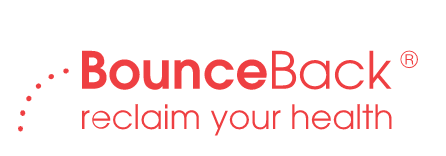

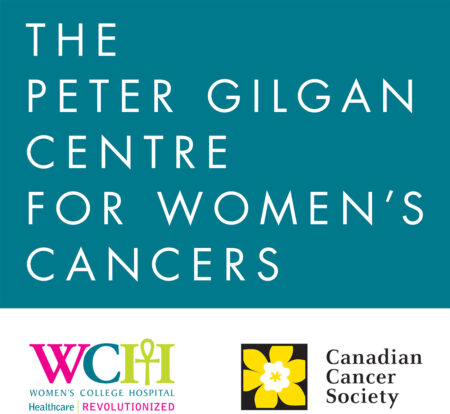
- A closer look at chemotherapy-induced heart failure in the setting of early breast cancer
- Weight gain and the risk of ovarian cancer in BRCA1 and BRCA2 mutation carriers
- “My cancer is only worth 15 weeks?” A critical analysis of the lived experiences of financial toxicity and cancer in Canada
- The risk of contralateral breast cancer
- An evaluation of memory and attention in BRCA mutation carriers using an online cognitive assessment tool
- Rapid genetic testing can help women choose breast cancer treatment
- Bilateral mastectomy in women with unilateral breast cancer
- Statins may reduce risk of heart failure after chemotherapy for breast cancer
- Which Genes for Hereditary Breast Cancer?
- Rapid Genetic Testing for BRCA1 and BRCA2 Mutations at the Time of Breast Cancer Diagnosis: An Observational Study
A Study of Familial Breast Cancer in BRCA Mutation-Negative Families: Women with a strong family history of breast cancer, but no BRCA1 or BRCA2 mutation, are two to four times more likely to develop breast cancer than women without a family history. Despite this elevated risk, no clinical guidelines have been developed for the care of these women. This study evaluates factors which may influence their risk.
Breast Cancer Treatment in Women with PALB2 Mutations: The Familial Breast Cancer Research Unit at Women’s College Hospital is conducting a research study to better understand breast cancer treatment among women with a PALB2 gene mutation.
Cognition in BRCA1 and BRCA2 Mutation Carriers: We are currently recruiting individuals to participate in a study investigating the effects of prophylactic oophorectomy (surgical removal of an ovary or ovaries) on cognition over a three-year period. The purpose of this study is to evaluate possible changes in memory and attention and to determine if there is any correlation with another gene, apolipoprotein E (APOE).
Follow-up Telephone Genetic Counselling Study: This research study aims to evaluate a follow-up telephone-based genetic counselling intervention for women with a BRCA1 or BRCA2 mutation who have received genetic counselling in the past.
Rapid Genetic Testing for Newly Diagnosed Breast Cancer Patients Phase II: This study provides genetic testing for nine genes associated with increased risk of breast and other cancers free of charge to participants. Test results are available quickly, with a testing turnaround time of 5-12 days, and all results are disclosed to participants by a genetic counsellor.
Reducing the bUrden of Breast cancer in Young women (RUBY) Study: This study is a pan-Canadian collaborative comprised of a national network of 62 researchers and clinicians at 44 institutions and clinics across Canada, with the common goal of studying breast cancer in young women.
Risk Factor Analysis of Hereditary Breast and Ovarian Cancer: This is the largest long-term study of women who carry a mutation in one of the two breast cancer genes (BRCA1/BRCA2). Its purpose is to better understand the prevention and treatment of hereditary breast and ovarian cancers.
The Screen Project: The Screen Project is a Canadian National initiative to make BRCA1 & BRCA2 screening available to all Canadians over 18 years of age at an accessible price. We hope that our study will reduce the mortality from breast, ovarian, prostate and other cancers.



